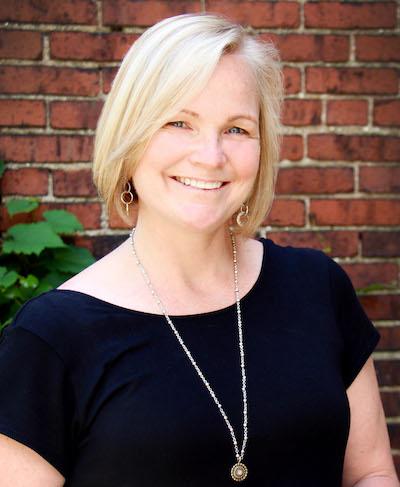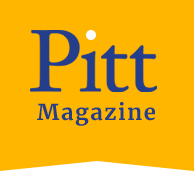Though she grew up in Pittsburgh, Marie K. Norman was born in Kathmandu, Nepal, and spent the first three years of her life there. Exploring those beginnings, she said, influenced her curiosity about culture and all the possible expressions of what it means to be human.
“I was interested,” she said, “in how differently other cultures think about illness and how they conceptualize beauty and how they structure their politics and all of these alternative ways of thinking about everything under the sun.”

Her parents were teachers, her father’s parents were teachers. She called it “the family business,” and said growing up around people interested in education, students and learning, combined with her own interest in culture, nudged her toward an early career in anthropology. She earned a bachelor’s in sociology/anthropology at Oberlin and a PhD in cultural anthropology at Pitt (A&S ’99G), examining cross-cultural issues in medicine and how different cultures think about the body, healing and illness.
Norman’s career took her first to Carnegie Mellon University, where she taught anthropology in the history department and then began working at the Eberly Center for Teaching Excellence. While there, she co-authored “How Learning Works: Eight Research-based Principles for Smart Teaching.”
Eventually, Norman returned to Pitt as faculty in the School of Medicine. She recently won a Chancellor’s Distinguished Teaching Award for her role as the founder and director of Pitt’s Innovative Design for Education and Assessment (IDEA) Lab. Norman was also recognized for her contributions to the design and implementation of five online programs, run by the Institute for Clinical Research Education (ICRE), that support underrepresented minority researchers.
We spoke with Norman about her work. The interview has been edited for length and clarity.
Pitt Magazine: You’re co-author of a book that offers principles for “smart teaching.” What are some of those principles?
Norman: The principles all involve factors that influence learning. For instance, motivation is the fuel that drives the behaviors that contribute to learning and is a critical component of learning. In the book, we spell out the factors that increase motivation, such as value and expectancy.
Learners have to believe “I'm capable of doing this. I've got the support I need.” The classes need to be structured in a way that, if learners put in the hard work, it will pay off. That’s the expectancy piece. Combine that with the value learners may or may not see in the content. Do they believe what they’re learning will help them to be a better person or a more informed citizen or a more employable adult? That’s the value piece. And they need to perceive the value of course content and have positive expectancies to sustain motivation. Value and expectancy go together. If educators understand value and expectancy, they can use them to increase motivation in classes by thinking about who’s in the class and what is motivating them to be there.
To that point, teaching is also an exercise in empathy because you have to think about other people. What are their goals, what are their interests, what drives them? The book also discusses prior knowledge and its role in learning; the organization of knowledge and why that matters; the importance of classroom climate; and, finally, how the individual and cultural differences that people bring into the classroom affect learning.
Can the principles help anyone teach better?
Anyone can teach better. There is a notion that you’re either born a good teacher or you're not. But there is a tremendous amount that all of us as teachers can learn about learning. The point is not teaching, the point is learning. And so, thinking about what's happening from the learner's perspective and what kinds of things facilitate learning — that’s the knowledge we ought to have as teachers. But instead, what often happens is an assumption that if you have subject matter expertise, then you are qualified to teach — without recognizing that teaching is its own skillset with its own subject matter expertise
And I think we do a disservice to teachers and students by underestimating what is involved in teaching well and not training people in a rich or systematic way to use the knowledge of how learning works to inform their teaching.
There seems to be this tension between the development of subject matter knowledge and the development of teaching skills. Can this be reconciled to make campuses more effective?
I think one of the things with instructors is they (we) have learned to teach by watching our own teachers, so what they did feels like the right and natural way to do things. Unlearning some of the things we've learned about teaching through osmosis is part of the process of improving. Eventually, if teaching role models can move away from “death by PowerPoint” or “the sage on a stage,” as it’s called, toward more engaged forms of teaching that compel learners to think and actively construct knowledge and not just receive it passively, I think we’ll see progress.
Some of that requires better training for instructors and not just the assumption that they've got everything they need simply by virtue of having subject matter expertise. And some of it is providing new kinds of role models and ample practice. I think it will work because most people who teach want to teach well.
Who has access to the IDEA Lab? Who gets to benefit from the work and training that you do there?
We work very closely with medical educators, many of whom teach in the ICRE degree program in medical education. We have worked with them to develop some modules and trainings around medical education. But for the most part, the IDEA Lab is focused on training people to do high-caliber clinical research. So, we're generally working with MDs who want to become researchers or MDs or PhDs who want to become educators, helping them develop the skills to pursue those goals.
Our first order of business is helping ICRE faculty teach their courses more effectively. But also, we're involved with several grant-funded programs that provide training, mentoring, and support to faculty from underrepresented backgrounds at key career stages. One training program we've been working on is called TRANSFORM. It is a partnership between Pitt and different Hispanic, Native American and African American centers of excellence and it focuses on supporting underrepresented faculty at mid-career, just when they're poised to make the biggest difference as mentors and institutional leaders.
When we build a better teacher, do we get a better anthropologist? Do we get a healthier patient? With the work that you do, what's the benefit to society?
Yes, when we build a better teacher, when we give teachers the training and the resources and the practice that they need to foster deeper, more meaningful student learning, we get a better ‘next generation’ of anthropologists or medical educators or clinical researchers. We get people who understand the value of the field more deeply. We get people who know how to break complex ideas down for different audiences, which is critical in medicine. When you're talking to patients, you need to be able to adjust the way you speak, whether it's a 10-year-old or an adult from a different culture. Some of those skills of good teaching also translate into being more effective professionals.
How does the work you’re doing show us how schools should think about teaching and building better teachers?
I think that the work I do, and the work that so many other people do in this area, helps move Pitt into cutting-edge ways of thinking about and structuring learning. We have to think about delivering content in formats other than just lecture. We have so many ways of getting content now. We have AI, we have the internet and our job as educators should not be primarily conveyors of content. That's part of it. But where we can make the biggest difference is in structuring experiences for students to help them figure out how to access and evaluate the content they're exposed to; how to be literate about reading information and media; how to use things like AI in a responsible value-driven, ethical way. That’s the critical thinking piece and that's what we can still do best.



